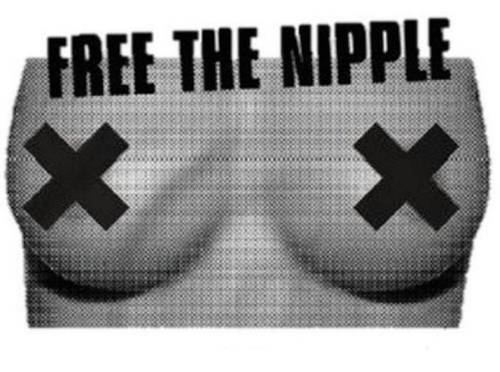A Missouri judge ruled Monday that Springfield city officials don’t have to “Free the Nipple” if they don’t want to.
Chief Judge for the Eighth U.S. Circuit Court of Appeals, Lavinski Smith, penned a legal opinion that upheld a Springfield ordinance that bans women from going topless in public, writing that the ordinance “substantially related to its important governmental interests in promoting public decency and proscribing public nudity to protect morals, public order, health, and safety,” the Arkansas Times reports.
While “three appeals court judges made the ruling,” KY3 reports, “the full 11 judge appeals court could still review the case.”
The case stems from a lawsuit brought by two members of the nonprofit Free the Nipple-Springfield Residents Promoting Equality who argued that a city ordinance against bare female breasts in public violated their constitutional rights because it treated men and women differently, KCUR reports.
City officials adopted an indecency ordinance in 2015, prompting a protest from boob activists that eventually convinced the city to revert to a previous ordinance on the issue. Despite the change, the Free the Nipple members sued the city with the help of the ACLU, and U.S. District Judge Beth Phillips ruled in favor of Springfield in 2017.
According to the Springfield News-Leader:
On Monday, a three-judge panel for the appeals court agreed with the lower court, citing at least eight cases during which courts upheld similar laws, including a 2001 case called Ways v. City of Lincoln during which the court upheld a law “almost identical” to Springfield’s.
“This court must follow the holding in Ways,” the decision states. “Springfield’s ordinance is substantially related to its important governmental interests in promoting public decency and proscribing public nudity to protect morals, public order, health, and safety.”
ACLU of Missouri Legal Director Tony Rothert told the news site the outcome isn’t unexpected because the court is bound by precedent, though he’s hoping the full 11-judge panel will weigh in because he believes times have changed since the 2001 Nebraska case.
“We think that one and other ones like it are based on old stereotypes that are just not based in fact,” Rothert said, adding that the law prohibited both men and women from going topless before it was changed in the 1930s, when people viewed men and women as fundamentally different.
“But time has shown us that’s not true,” he said. “Men and women are equal … and we really hope to bring equality and justice across the board to Springfield.”
In similar cases in other states, the results have been mixed.
The Eighth Circuit Court of Appeals panel noted that a Tenth Circuit Court sided with Free the Nipple proponents who sued to block a Fort Collins, Colorado law that prohibits the display of female areolas, but followed the precedent in the Eighth District.
In the Colorado case, Judge Gregory Phillips wrote that “laws grounded in stereotypes about the way women are serve no important government interest.”
That decision followed about a week after the New Hampshire Supreme Court found that Laconia, New Hampshire’s ordinance against women going topless at the beach “does not violate the defendants’ constitutional rights to equal protection or freedom of speech under the state and federal constitutions.”
Leave a Comment
COMMENTS POLICY: We have no tolerance for messages of violence, racism, vulgarity, obscenity or other such discourteous behavior. Thank you for contributing to a respectful and useful online dialogue.